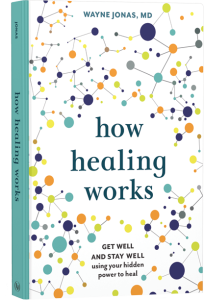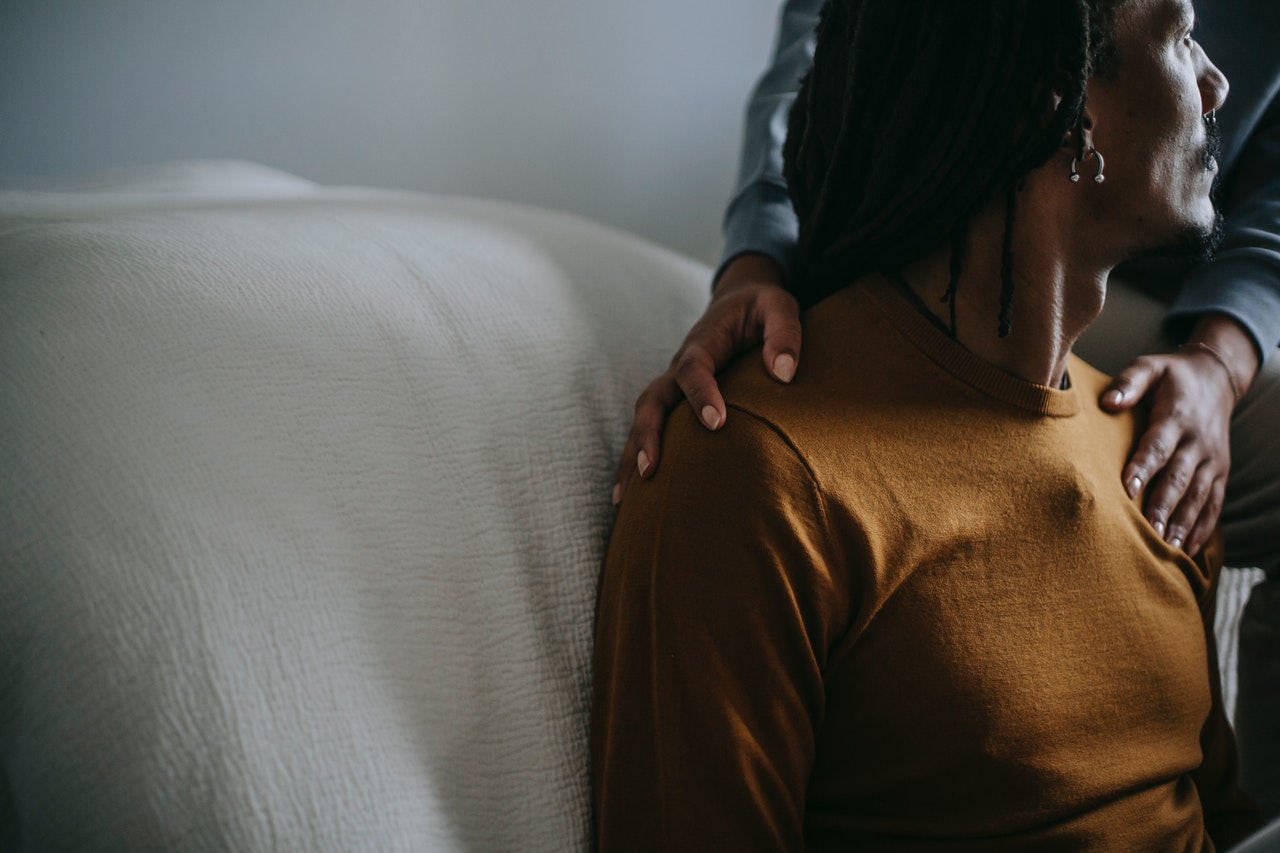This year, focus on what’s possible.
When you say, “I can’t believe the holidays are almost here!” your mind, spirit, and body may respond in different ways. Your mental response may be, “Ugh, the holidays. That means a lot of shopping! Prices are so much higher this year.”
Your spirit might sigh, “I just can’t listen to any more of Aunt Lydia’s opinions.” And your body might recoil at the thought of navigating a busy airport. “I’m not sure I want to travel. Is it even safe?”
When holidays were magic
Remember when you looked forward to the winter holidays? In the best of all possible kids’ worlds, they kicked off when you thought up your Halloween costume and strategized to get as much candy as possible. Your spirit soared as you roamed the neighborhood after dark, enjoying the chance to run a little wild and eat sugary treats.
For Thanksgiving, you may have stuffed your body and relaxed your mind after the rigors of high school term papers. Seeing family, watching football, or anticipating the next holiday could feed your spirit.
In November and December, the busyness, planning, lights and colors of Christmas, Diwali, or Kwanzaa or the eight nights of Hanukkah provided a welcome distraction from everyday life in winter. Back when the holidays felt good, chances are that your mind, body, and spirit were all engaged and nurtured by holiday activities.
Now that you’re an adult with responsibilities, we have news: The holidays can still be magical, just in a different way. Decorating your porch for the season is a COVID-safe way to celebrate and inspire your neighbors. Signing up for a holiday walk or run gives you the mind-body-spirit benefits of exercise. This year, family members may feel more ready to gather. There’s a silver lining to pandemic restrictions: Now, the simplest things, like a trip to the mall or a restaurant meal, are special in a way they never were before.
When holidays seem hopeless
Not everyone had picture-perfect holidays as a child or in adulthood. Arguments, too much drinking, too much spending, and emotional disconnection from friends and family can make this time of year painful.
Did you lose a friend, loved one, or perhaps a pet recently? Get divorced? Receive a diagnosis of cancer or another serious illness? Maybe you’re putting in extra hours at work and can’t imagine finding time to decorate or relax.
The good news is that you always have the power to hope. As you read, think about what you hope for this time of year.
Hope for celebrations
You might hope things can be more like they used to be, before COVID-19 restrictions or differences of opinion started keeping friends and family apart. Or you might hope to stay away from people you’ve had a good excuse to avoid for the last 18 months.
Is a picture-perfect Christmas with the kids and grandparents what you hope for? Snuggling by the fire with your sweetie or taking a long walk alone? Maybe you’re alone but don’t want to be. Every car that arrives next door filled with happy revelers reminds you of what you don’t have.
Ask yourself: What am I happy to celebrate this year?
Hope, or at least a wish, exists in every case. Our tool “How to Have a Hopeful Holiday” can help you figure out how to mark the holidays in ways that are meaningful to you.
Hope for giving
Days that are traditionally marked by bigger meals, gifts, and rituals can be costly. This year, your kids’ most-wanted items may be hard to find or not arrive on time. Labor shortages and supply-chain problems are making things from T-shirts to cars scarce.
For the mind and spirit, this could be a good thing. Most of us are used to getting what we want more or less when we want it. (Remember the days when you ordered something and waited 10 days for it to arrive?)
We whip ourselves into frenzies of buying and ordering, especially at the winter holidays. But the focus on physical pleasure and material goods can wear on our bodies, credit cards, minds, and spirits. If you’re hoping for stronger connections with those you love, it might be time to reframe experiences—as a family, a couple, a volunteer, or a coworker—as gifts and ways to celebrate.
Dora, a single woman with no kids of her own, gave her nieces and nephews the gift of time on every birthday. The kids chose an activity, such as rock climbing, horseback riding, taking a cooking class, or going to the mall. Dora picked them up on the designated day, and off they went to enjoy that year’s “birthday activity” together.
The holidays are filled with activities you can share. Singing carols. Teaching your kids to light a menorah safely. Memorizing the principles of Kwanzaa, creating a Solstice ritual together, or having a movie night or bonfire with neighbors. Ask yourself: What activities would I like to share this year?
If you love to give physical gifts or the holidays are an important time to refresh basics such as pajamas, perhaps you can give small-business owners some hope. Buying gifts or necessities at a local store instead of a chain can help. Try breakfast with coworkers or meet for drinks after work at a local restaurant to celebrate the holidays.
Hope for health and safety
Colds, flu, and now COVID-19 infections are often a concern around the fall and winter holidays. Depending on where you live, you may be especially concerned about older adults (over 65 and especially over 85 are vulnerable to COVID-19, influenza, pneumonia) or those with underlying conditions such as diabetes, obesity, cancer, or others.
If you hope for a healthy holiday, there’s plenty you can do in addition to talking to your doctor about COVID and flu vaccinations. If you’re avoiding large gatherings, consider getting together with your favorite people in small groups, couples, or singles. Concerned about air travel? Take a tip from Bill, who lives with a chronic immune system condition that got him in the habit of spritzing the armrest and tray table with hand sanitizer long before COVID-19 came along. Keep up good handwashing habits, wear a mask when regulations or your comfort level dictate, or consider visiting family members after the holiday when fewer people are traveling.
Ask yourself: How can I stay physically healthy this year, and help others do the same?
Health also includes mental and spiritual health. Have you been too busy to contemplate anything, let alone the beauty of your personal traditions? Put religious services on the calendar now, before things get rushed. Start a meditation or tai chi practice for a few minutes, three times a week. Find ways to get outdoors for the holidays, if the weather allows. A hike or visit to a park is a great way to let kids burn off energy and help you work off some holiday stresses.
Ask yourself: How can I keep my spirit healthy?
If you’re lonely, isolated, or extremely stressed, take a small step to reach out. Text a friend or relative and ask to Zoom or chat. Contact Betterhelp.com or another counseling service online. Some areas may have in-person support and counseling available. Use the holidays as a time to gift yourself with support and caring and prepare for a new calendar year. This year, I have planned to reach out to a group of old friends that I enjoy but have neglected in the business of day-to-day activities. Now it is on my ‘to-do’ list and calendar.
Ask yourself: How can I boost my mental health?
Hope for change
It’s been almost two years since the news about COVID-19 created a global domino effect on work, personal life, mental and emotional health, and attitudes. The enormous changes have affected us all, including at holiday times.
Creating new traditions is one silver lining. Says Laura, “My husband and I have decided to stay out of the busy rush and germs of the airport. Staying home is our new tradition. It lowers stress exponentially.” Or schedule a springtime gathering: Passover, Easter, Beltane, or St. Patrick’s Day, depending on your tradition.
You may also want to help older family members make the shift from host to guest. If Mom and Dad have always hosted a first night of Hanukkah dinner but have a tough time cleaning and cooking now that they’re older, this might be the year to invite them to your place.
Your turn to hope
So, what do you hope for? A chance to change things up, a delicious meal, new traditions, or peace of mind? Check out our free downloadable tool, “How to Have a Hopeful Holiday,” to figure out what you want this year and take steps to make it happen. In a time when we feel not much is in our control, it’s a relief to discover there are some things we are still in charge of. The choice to feel hopeful is one of them. Happy holidays!

Take Your Health Into Your Own Hands
Drawing on 40 years of research and patient care, Dr. Wayne Jonas explains how 80 percent of healing occurs organically and how to activate the healing process.

